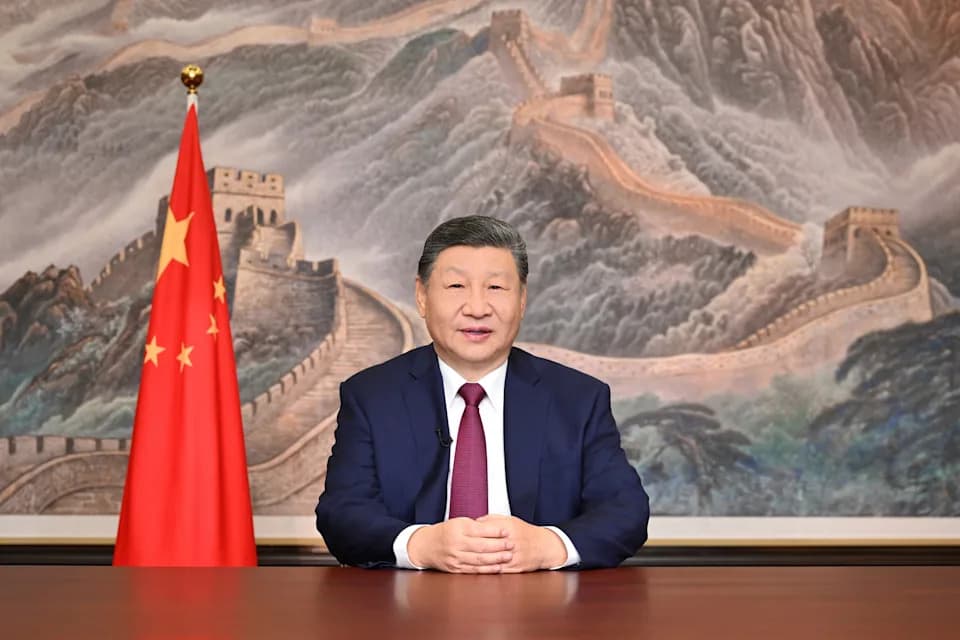Key points: Japan's Prime Minister Sanae Takaichi said on November 7 that Tokyo might respond militarily if force were used against Taiwan, prompting sharp backlash in China. Beijing summoned Japan's ambassador and a Chinese consul general posted a now-deleted threatening message on X. State media and social platforms amplified criticism, the Chinese embassy warned citizens against travel to Japan, and the defence ministry cautioned Tokyo it would "pay a painful price" if it intervened. Some Chinese citizens praised the government's measured public response, but analysts warn the rhetoric risks raising regional tensions.
China Outraged After Japan PM Suggests Tokyo Could Respond Militarily Over Taiwan

Diplomatic row escalates as comments on Taiwan spark strong reaction in China
Chinese media and ordinary citizens reacted with anger on Monday after Japan's Prime Minister, Sanae Takaichi, said on November 7 that Tokyo might consider a military response if force were used against Taiwan — the self-ruled island that Beijing claims. The comments have intensified an already tense relationship shaped by historical grievances and strategic rivalry in the region.
Public reaction: In Beijing, 36-year-old restaurant worker Sun Gang said, "What does our country's unification have to do with them?" He told AFP: "It's like someone interfering in your own family." Social media in China quickly filled with criticism: three of the top five trending topics on Weibo on Monday were tied to the dispute with Japan.
Official and diplomatic moves: Beijing demanded that Takaichi retract her remarks and summoned Japan's ambassador on Friday. On November 8 the Chinese consul general in Osaka, Xue Jian, posted on X a now-deleted message that was widely interpreted as a threat to "cut off that dirty neck," a reference understood to mean Takaichi. Tokyo said it had summoned the Chinese ambassador in response to the deleted post.
State media and government statements: State-aligned outlets intensified criticism. An opinion piece in the ruling Communist Party's official newspaper, People's Daily, said: "Sanae Takaichi throwing around fallacious remarks about Taiwan is tantamount to reviving the spectre of militarism. This fully exposes the extremely wrong and dangerous historical... and strategic views of the right-wing forces in Japan," calling it a "dangerous shift in Japan's strategic direction." A commentary by state broadcaster CCTV warned that "if Sanae Takaichi refuses to repent, Japan will be eternally doomed."
People's Daily: "Sanae Takaichi throwing around fallacious remarks about Taiwan is tantamount to reviving the spectre of militarism."
CCTV: "If Sanae Takaichi refuses to repent, Japan will be eternally doomed."
Precautions and military warnings: The Chinese embassy advised citizens to avoid traveling to Japan, citing "significant risks" to their safety and saying recent Japanese remarks have "severely damaged the atmosphere for people-to-people exchanges." Beijing's defence ministry warned that Japan would "pay a painful price" if it intervened in any conflict over Taiwan.
Voices calling for restraint: Not all responses were hawkish. Beijing tech worker Daniel Feng described the government's public reactions as "very restrained" given what he called Takaichi's "extremely unreasonable" remarks. "I very much support our government's statements, including its condemnations," he said. "If she spouts words, that's not a problem... but if they take real action, our country's military will definitely defeat them."
Context: Japan ruled Taiwan until 1945, when it lost World War II. Takaichi took office in October, and her comments have come amid broader tensions in East Asia over security, sovereignty and the balance of power.
Outlook: The exchange highlights the fragility of regional relations and the potential for rhetoric to escalate into diplomatic and security consequences. Observers say sustained high-level dialogue and careful diplomacy will be essential to prevent further deterioration.
Help us improve.


























